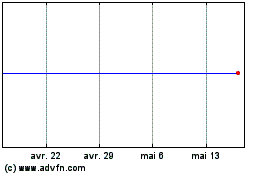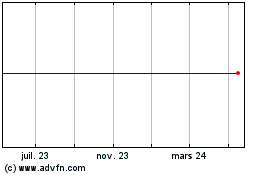By Dustin Volz
WASHINGTON -- A Russian influence campaign ahead of the 2016
election used a range of social-media platforms to suppress
African-American voter turnout and boost Donald Trump's
presidential bid, while relying more on Instagram than previously
known, according to two independent studies released on Monday.
The reports, commissioned by the Senate Intelligence Committee,
are the first to draw from a trove of data provided by Facebook
Inc., Twitter Inc., Google's YouTube and other platforms exploited
by Russian trolls during the 2016 campaign.
The new research offers granular detail of efforts by Russian
actors, including the Internet Research Agency, a troll farm based
in St. Petersburg that is funded by a Kremlin-connected oligarch,
to pose as Americans on Facebook, Instagram, YouTube, Twitter,
Pinterest and other platforms and inject divisive content into
America's political discourse.
Among other findings, the research highlighted efforts to liken
Mr. Trump to Jesus in social-media posts and vilify his Democratic
opponent, Hillary Clinton, as demonic. It found efforts to energize
conservative voters over immigration and gun rights and to sow
distrust in the electoral process to damp enthusiasm among
demographic groups like African-Americans that tend to vote
Democratic.
Instagram's use as a favored tool by the Russians to spread
disinformation is likely underappreciated, one of the reports
concluded, assessing that the Facebook-owned photo-sharing site
became more popular in 2017 as public scrutiny focused largely on
other platforms.
Russia-linked content was found to have a higher rate of
specific mentions of Mr. Trump or Mrs. Clinton on Instagram than
Facebook or Twitter and outperformed other sites in terms of
overall engagement. There were 187 million interactions with
deceptive content on Instagram compared with 76.5 million on
Facebook, the research from New Knowledge, a Texas-based
cybersecurity firm, found. That suggested Instagram may be more
susceptible to viral influence operations than other social-media
services, the researchers said.
While U.S. officials say Russian trolls and hackers seem mostly
to have sat on the sidelines during this year's midterm elections,
the researchers say the effort to meddle in U.S. politics
continues.
"This newly released data demonstrates how aggressively Russia
sought to divide Americans by race, religion and ideology, and how
the [Internet Research Agency] actively worked to erode trust in
our democratic institutions," Sen. Richard Burr, the Republican
chairman of the Senate Intelligence Committee, said in a statement.
"Most troublingly, it shows that these activities have not
stopped."
Their conclusions broadly align with the January 2017 assessment
by U.S. intelligence agencies that Russian President Vladimir Putin
ordered a multipronged cyber operation seeking to boost Mr. Trump
and denigrate Mrs. Clinton, and with findings by the social-media
companies and U.S. criminal indictments against Russian trolls and
hackers.
Those indictments were brought by Robert Mueller, the special
counsel investigating, among other things, links between Trump's
campaign and Russian influence. Mr. Trump has repeatedly denied
that while also casting doubt on the U.S. conclusion that Russian
actors interfered in the election to his benefit.
The report by New Knowledge found that the Internet Research
Agency was especially interested in targeting African-American
voters and "focused on developing black audiences and recruiting
black Americans as assets." Russians recruited apparently unwitting
Americans of all backgrounds to attend rallies or help spread
content online, but they spent the most time specifically aiming
those efforts at African-Americans, the report concluded.
Those tactics included targeting those groups with content
intended to stoke racial tensions with posts on police brutality,
and dissuade them from going to the polls by casting doubt on the
integrity of the electoral process. They sought to encourage voters
to switch support from Mrs. Clinton to Green Party candidate Jill
Stein, who won more than 1% of the popular vote.
The New Knowledge study also traces a common tactic by Russian
operatives: building massive followings with a Facebook or
Instagram page on other topics, such as the television program "The
Simpsons," before shifting to overtly political content. One of the
most viral posts tracked on Facebook was a meme stating veterans --
another demographic audience often targeted by Russian operations
-- deserved support before refugees. The post was shared in
September 2016 and had more than 720,000 engagements.
The other report, produced by the University of Oxford's
Computational Propaganda Project and Graphika, a network-analysis
company, found origins of Russian online-influence operations
targeting U.S. audiences as far back as 2009. Efforts to sway
American political conversation began to emerge as early as 2013 on
Twitter, the report found.
News of the reports' findings prompted the National Association
for the Advancement of Colored People to announce it was returning
a recent donation from Facebook. The group, one of the U.S.'s
oldest civil-rights organizations, called for a one-week boycott of
Facebook and additional congressional investigations into the
company's role in spreading Russian disinformation. A spokeswoman
for the NAACP declined to describe the size of the donation being
returned.
Both reports faulted social-media companies for their responses
to the Russian efforts and said they had been unwilling in some
cases to share data with researchers. The New Knowledge report said
the companies appeared to have "misrepresented or evaded in some of
their statements to Congress," including suggesting that certain
demographic groups weren't targeted and that there were no
discernible efforts to suppress votes.
Representatives for Twitter and Facebook didn't comment
specifically on the findings in the new research. Google, part of
Alphabet Inc., declined to comment.
"As we've said all along, Congress and the intelligence
community are best placed to use the information we and others
provide to determine the political motivations of actors like the
Internet Research Agency," a Facebook spokeswoman said. "We
continue to fully cooperate with officials investigating the IRA's
activity on Facebook and Instagram around the 2016 election."
A Twitter spokeswoman said the company was focused on improving
conversation on its service and that protecting the integrity of
elections was a key aspect of that goal.
Write to Dustin Volz at dustin.volz@wsj.com
(END) Dow Jones Newswires
December 17, 2018 17:54 ET (22:54 GMT)
Copyright (c) 2018 Dow Jones & Company, Inc.
Twitter (NYSE:TWTR)
Graphique Historique de l'Action
De Juin 2024 à Juil 2024

Twitter (NYSE:TWTR)
Graphique Historique de l'Action
De Juil 2023 à Juil 2024
